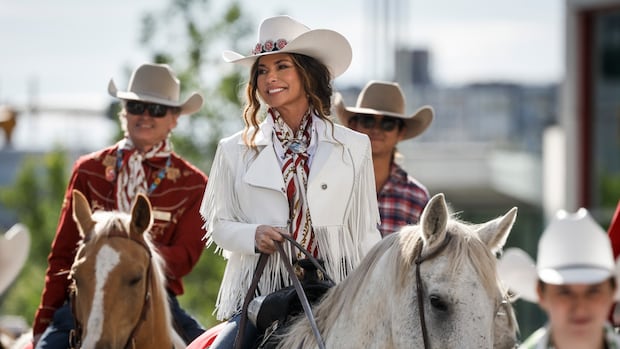Next month’s byelection in Alberta’s Battle River-Crowfoot will break the record for the most candidates on a federal ballot in Canadian history.
As of Friday, 108 candidates — mostly associated with a group of electoral reform advocates known as the Longest Ballot Committee — have registered to run for the seat.
The byelection was called after its recently re-elected MP, Damien Kurek, resigned to allow Conservative Leader Pierre Poilievre to run for a new seat in the House of Commons. Poilievre lost in his longtime riding of Carleton in April.
The Longest Ballot Committee has been organizing dozens of candidates to run in byelections in recent years, resulting in metre-long ballots that have caused delays in vote counting and confounded some voters.
The group wants to put a citizens’ assembly in charge of electoral reform and says political parties are too reluctant to make the government more representative of the electorate.
The previous record of 91 candidates occurred twice in the past year: during a byelection in LaSalle-Emard-Verdun last September and Carleton during the general election this past spring.
The Longest Ballot Committee says it is aiming to sign up 200 candidates in Battle River-Crowfoot. The deadline to register as a candidate is July 28.
Protests draws ire of other candidates
Poilievre and other candidates who aren’t associated with the Longest Ballot Committee have criticized the protest.
Poilievre said during a town hall meeting in the riding last week that he wanted election rules to be changed to prevent more long ballot protests.
“”We have to take action because this is a scam. It is unfair, it is unjust and it must stop,” Poilievre said.
Although Elections Canada enforces the Canada Elections Act, Parliament is responsible for making any changes.
The Longest Ballot Committee rebuked Poilievre’s suggestion, arguing that it emphasized their point about politicians being in charge of election laws.
“When it comes to election law, politicians just have too much skin in the game to be calling the shots. There is a clear and inappropriate conflict of interest,” the group said in a statement earlier this week.
Bonnie Critchley — who is running as an Independent and pitching herself as an alternative to the Conservative leader, who she argues pushed Kurek out — has also called on the Longest Ballot Committee to back off.
Power & Politics speaks to Independent candidate Bonnie Critchley, who’s running against Conservative Leader Pierre Poilievre in the upcoming Alberta byelection. Critchley says if Poilievre does win, ‘it won’t be by much,’ and warns some residents feel ‘used’ by his attempt to regain a seat in the House of Commons.
In an open letter to the committee posted on her campaign website, Critchley said there is a “backlash” in the riding from voters who are worried that she is a “fake out” candidate.
“I don’t have a massive team, I don’t have backing from millions of people. I have to go door to door within my community and explain to my neighbours that I have nothing to do with you,” she wrote.
Michael Harris, who is running for the Libertarian Party, called the protest a “mockery of the democratic process.”
“This flood of joke candidates doesn’t just waste voters’ time. It actively hurts serious Independent and third-party candidates who are working hard to give this riding real alternatives,” Harris said in a statement.
Long ballot candidate pushes back against criticisms
Although this is the second time the Longest Ballot Committee has organized in a riding Poilievre is running in, they have also targeted Liberal strongholds. The Conservatives flipped the riding of Toronto-St. Paul’s during a byelection last summer that featured dozens of candidates associated with the long ballot protest. (The Liberals won the seat back in the general election).
Jayson Cowan, a candidate affiliated with the Longest Ballot Committee, pushed back on the idea that the group is deteriorating the democratic process.
“It’s not a fraud, it’s not a gimmick. It’s not even completely a protest because everybody has their own reasons [for being on the ballot],” Cowan told CBC News.
Cowan said election rules — specifically the requirement that a candidate have 100 signatures on their nomination form — favour organized political parties.
A member of the Métis Nation of Alberta, Cowan has tried to run in elections in the past as an Independent. But he said he struggled to get enough signatures for his nomination form, in part due to mobility issues. He credits the Longest Ballot Committee for helping get his name on the ballot for the first time in next month’s byelection.
“This is no protest for me. It’s the real deal. And they’re just offering a beautiful, fantastic democratic service,” he said.
Cowan said he wants to see more Indigenous representation and more politicians from the disabled community. Although he doesn’t live in the riding, he is pitching himself as a better option than Poilievre.
“Who wants an Ottawa politician [in Battle River-Crowfoot]? He definitely messed up his [Carleton] riding… and he just wants a free ride now. I don’t condone that at all,” Cowan said.
“If they vote me in, I will serve.”

